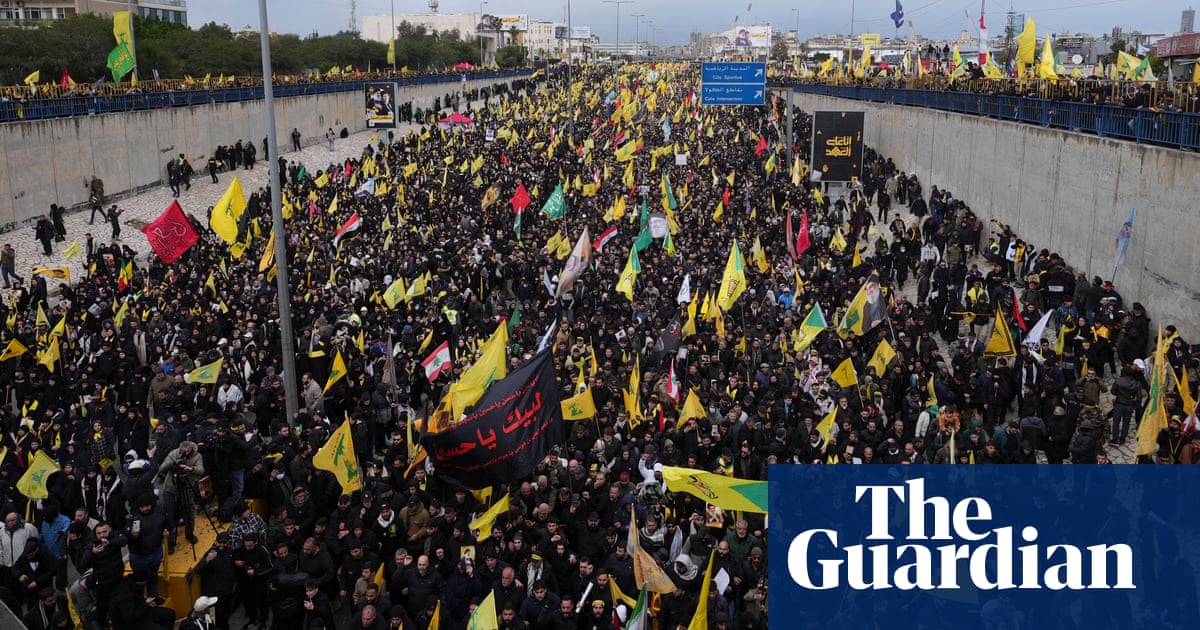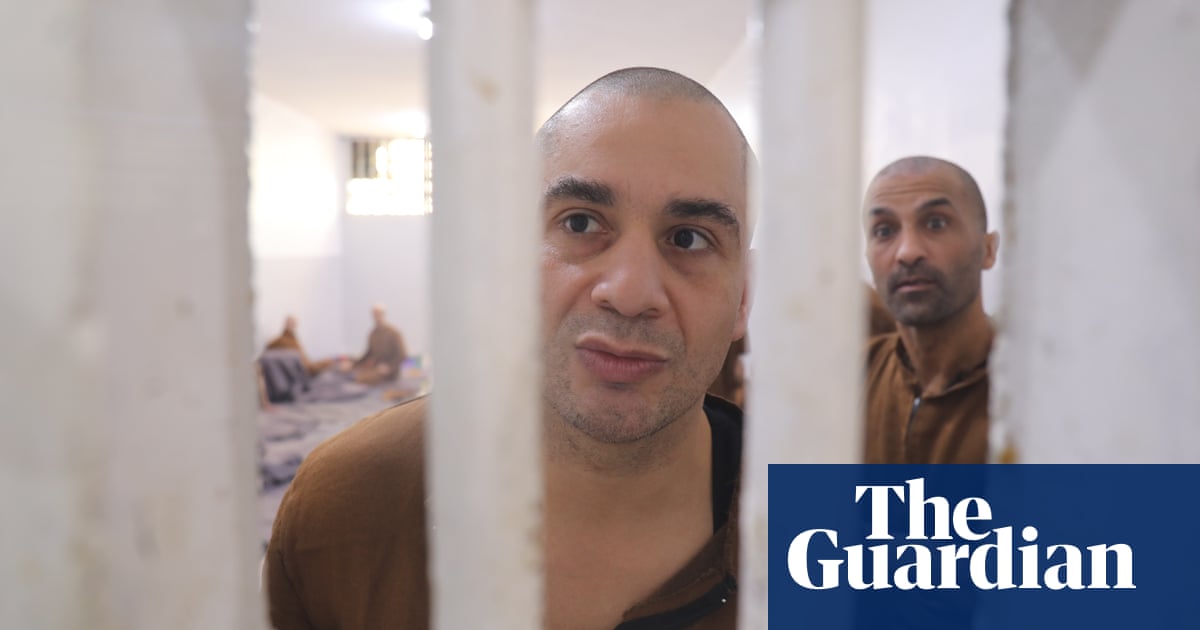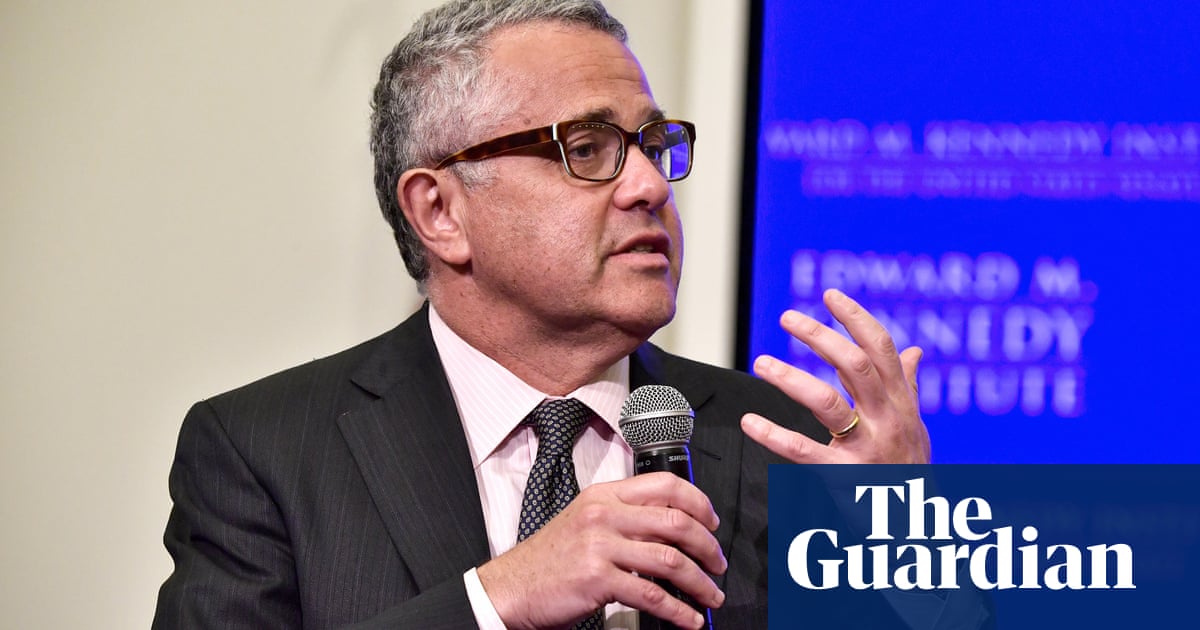Israeli minister: ceasefire with Hezbollah would be 'historical missed opportunity'
Itamar Ben-Gvir, the far-right interior security minister in Benjamin Netanyahu’s coalition government, has said a ceasefire between Israel and Hezbollah would be a “historical missed opportunity”.
Media in Israel quotes him in an interview with Kan Radio saying:
We have a historic opportunity to decisively act in the south [in Gaza] and north [in Lebanon]. It will be a historical missed opportunity if we stop everything and go backwards.
In reference to the Israeli prime minister’s apparent readiness for a deal, Ben-Gvir said “it’s possible that someone doesn’t want to hear my objections.”

Key events Show key events only Please turn on JavaScript to use this feature
Israeli opposition politician Benny Gantz, leader of the National Unity political alliance, has said that Israel must take advantage of any deal with Hezbollah to “fundamentally change the situation in the north.”
Rejecting the idea of a “temporary ceasefire”, he said we must not do half-hearted work, we must not miss the opportunity for a strong agreement.”
Posting to social media he said:
We paid so much – in the blood of our fighters, in the wounded, in the many battle days of the military men, in budgets and armaments. The residents of the north have been evacuated for over a year, and those who live on the second line are staying in shelters.
EU's Borrell: 'no excuse' for not implementing ceasefire between Israel and Hezbollah in Lebanon
Josep Borrell, the EU’s top diplomat, has said there is no excuse for not implementing a ceasefire deal between Israel and Hezbollah in Lebanon.
Reuters reports he said that the proposed deal has the necessary security guarantees for Israel, and that the international community should put pressure on Israel to approve it.
Borrell also referenced the recent decision by the international criminal court to issue arrest warrants for the Israeli prime minister, Benjamin Netanyahu, the country’s former defense minister Yoav Gallant, and the Hamas military leader Mohammed Deif for alleged war crimes relating to the Gaza war.
Borrell said he hoped that Europeans would fulfil their obligations under international law, saying it was not possible to approve of the court when it pursues a case against Vladimir Putin, and oppose it when it puts a case against Netanyahu.
77-year-old Borrell is to be replaced in the role he has held since 2019 by former Estonian prime minister Kaja Kallas at the beginning of December.
The National News Agency of Lebanon reports that “civil defence, ambulance and Lebanese Red Cross teams [have] resumed searching for missing persons in buildings destroyed by the enemy” in Tyre.
Haaretz reports that the head of Shlomi regional council, an area in the far north-west of Israel, has said that a ceasefire deal would be a tactic to buy time until there was a change of government in the US.
Gabi Ne’eman is quoted as saying in a letter a ceasefire would “buy time” and allow Israel a pause to “assess the situation on the ground.”
He continued on to say “the US government will change … and the situation will change significantly.”
Palestinian news agency Wafa reports that “dozens were killed and injured” on Tuesday morning by an Israeli strike on a house in Jabalia in the north of the Gaza Strip.
More details soon …
Overnight, in operational updates posted to its official Telegram channel, Israel’s military has claimed that “approximately ten projectiles were identified crossing from Lebanon into Israeli territory,” some of which were intercepted.
It also reported a drone was intercepted “from the east” crossing into Israeli-held territory in the Golan area. When used by Israel’s military, the phrase “from the east” usually means from the direction of Iraq.
Israeli minister: ceasefire with Hezbollah would be 'historical missed opportunity'
Itamar Ben-Gvir, the far-right interior security minister in Benjamin Netanyahu’s coalition government, has said a ceasefire between Israel and Hezbollah would be a “historical missed opportunity”.
Media in Israel quotes him in an interview with Kan Radio saying:
We have a historic opportunity to decisively act in the south [in Gaza] and north [in Lebanon]. It will be a historical missed opportunity if we stop everything and go backwards.
In reference to the Israeli prime minister’s apparent readiness for a deal, Ben-Gvir said “it’s possible that someone doesn’t want to hear my objections.”

Opening summary
Welcome to the Guardian’s live coverage of the Middle East crisis.
Israel’s security cabinet is due to meet on Tuesday to decide on a ceasefire agreement with Lebanon after more than a year of fighting between Israeli forces and the Shia militia Hezbollah.
Under the deal being considered, the Israel Defense Forces (IDF) would reportedly withdraw entirely from southern Lebanon, Hezbollah would pull its heavy weapons north of the Litani River, about 16 miles (25km) north of the Israeli border, and the Lebanese army would move in to provide security in the border zone alongside an existing UN peacekeeping force, during an initial 60-day transition phase.
Israeli ambassador to the US Mike Herzog told Israeli Army Radio on Monday that there remained “points to finalise” and that any deal required agreement from the government. But he said “we are close to a deal” and that “it can happen within days.”
In other developments:
-
A Guardian investigation has found that Israel used a US munition to target and kill three journalists and wound three more in a 25 October attack in south Lebanon which legal experts have called a potential war crime.
-
Israel’s military launched airstrikes across Lebanon on Monday, unleashing explosions throughout the country and killing at least 31. Israeli strikes hit commercial and residential buildings in Beirut as well as in the port city of Tyre. Military officials said they targeted areas known as Hezbollah strongholds.
-
Syrian state television reported Israeli strikes on several bridges in the Qusayr region near the Lebanese border on Monday, with the defence ministry reporting two civilians injured in the attacks.
-
Weather is compounding the challenges facing displaced people in Gaza, where heavy rains and dropping temperatures are making tents and other temporary shelters uninhabitable. Government officials in the Hamas-controlled coastal enclave said on Monday that nearly 10,000 tents had been swept away by flooding over the past two days, adding to their earlier warnings about the risks facing those sheltering in low-lying floodplains.
-
An Israeli strike has wounded the director of Kamal Adwan hospital, one of the few hospitals still partially operating in the northernmost part of Gaza, local and international health officials said. Dr Hossam Abu Safiya was in his office when it was hit by an Israeli quadcopter drone on Sunday, according to the humanitarian organisation MedGlobal.

 2 months ago
53
2 months ago
53













































